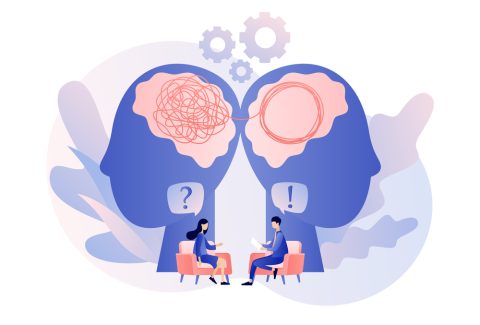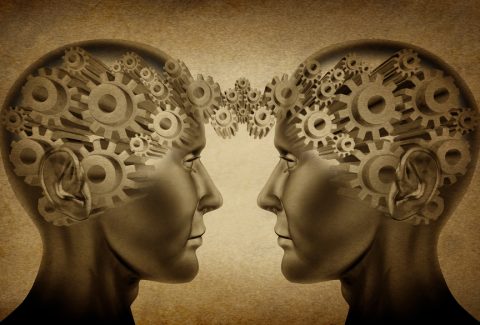What is Reminiscence Therapy? Unveiling the Power of Memories

What is Reminiscence Therapy? Unveiling the Power of Memories
In the ever-evolving field of mental health and wellness, Reminiscence Therapy[1] stands out as a powerful tool that harnesses the natural human tendency to reflect on past experiences. This therapeutic approach, which involves the recall and discussion of personal memories, has shown significant benefits for individuals across various stages of life, particularly the elderly and those with cognitive impairments. But what exactly is Reminiscence Therapy, and why is it so impactful?
The Essence of Reminiscence Therapy
Reminiscence Therapy is a structured process that encourages individuals to revisit and share their past experiences. This can be done through storytelling, photographs, music, or other memorabilia that evoke memories. The therapy is typically facilitated by a trained therapist or caregiver who guides the sessions to ensure they are meaningful and therapeutic.
The concept behind Reminiscence Therapy is rooted in the idea that reflecting on past experiences can provide a sense of continuity and identity, fostering emotional well-being. It allows individuals to connect their past with their present, creating a cohesive narrative of their lives. This process is not just about recalling events; it’s about understanding and interpreting those experiences in a way that promotes psychological healing and growth.
The Science Behind Reminiscence Therapy
Numerous studies have highlighted the effectiveness of Reminiscence Therapy in improving mental health. Engaging in this form of therapy stimulates cognitive functions, enhances mood, and reduces symptoms of depression[2] and anxiety[3]. For older adults, it can be particularly beneficial in combating feelings of loneliness and isolation.
Cognitive theories suggest that reminiscing helps to strengthen neural connections associated with memory.[4] This is crucial for individuals with dementia or Alzheimer’s disease, as it can slow cognitive decline and improve the quality of life. Moreover, the emotional release that comes from sharing personal stories can alleviate psychological stress, providing a therapeutic outlet for individuals struggling with unresolved emotions or trauma.
Benefits of Reminiscence Therapy
- Emotional Well-being: Reflecting on positive memories can enhance mood, reduce stress, and boost self-esteem. It helps individuals find joy and satisfaction in their life stories.[5]
- Cognitive Enhancement: Regular engagement in Reminiscence Therapy can help maintain cognitive functions, improving memory and attention. This is particularly beneficial for individuals experiencing cognitive impairments.
- Social Connectivity: Sharing memories fosters social interactions and strengthens relationships. It provides opportunities for meaningful conversations and deep connections with family members and peers.[6]
- Identity and Continuity: Revisiting past experiences helps individuals maintain a sense of identity and continuity, crucial for those experiencing significant life changes or loss.
- Therapeutic Healing: For individuals dealing with trauma or unresolved emotions, Reminiscence Therapy provides a safe space to process and make sense of their experiences, facilitating psychological healing.[7]
Implementing Reminiscence Therapy
Reminiscence Therapy can be adapted to various settings, including nursing homes, hospitals, and community centers. Here are some practical ways to implement it:
- Storytelling Sessions: Organize group sessions where participants share their life stories. This can be facilitated by a therapist who guides the conversation and ensures a supportive environment.
- Multimedia Tools: Use photographs, music, and videos to evoke memories. Creating personal memory boxes or scrapbooks can also be a powerful tool.
- Creative Activities: Encourage participants to engage in activities like writing, drawing, or crafting that relate to their past experiences.
- Digital Platforms: Leverage technology by using apps and digital tools designed to facilitate Reminiscence Therapy. Virtual reality experiences can also provide immersive ways to revisit significant moments.[8]
Conclusion
Reminiscence Therapy is more than just a trip down memory lane; it is a powerful therapeutic approach that can significantly enhance mental health and well-being. By providing a structured way to reflect on and share past experiences, it fosters emotional healing, cognitive resilience, and social connectivity. As our understanding of its benefits continues to grow, Reminiscence Therapy stands as a testament to the enduring power of our memories and their capacity to heal and enrich our lives.
[1] Latha, K. S., et al. “Reminiscence Therapy: An overview.” Middle East Journal of Age and Ageing 11.1 (2014): 18-22.
[2] Liu, Zhuo, et al. “The effectiveness of reminiscence therapy on alleviating depressive symptoms in older adults: A systematic review.” Frontiers in Psychology 12 (2021): 709853.
[3] Elias, Sharifah Munirah Syed, Christine Neville, and Theresa Scott. “The effectiveness of group reminiscence therapy for loneliness, anxiety and depression in older adults in long-term care: A systematic review.” Geriatric nursing 36.5 (2015): 372-380.
[4] Shin, Eunyoung, et al. “Effects of reminiscence therapy on quality of life and life satisfaction of the elderly in the community: a systematic review.” BMC geriatrics 23.1 (2023): 420.
[5] Abdel-Aziz, Hassanat Ramadan, and H. A. A. Ahmed. “The effect of group reminiscence therapy on self-esteem and emotional well-being of older adults.” Central European Journal of Nursing and Midwifery 12.4 (2021): 513-520.
[6] Laidlaw, Robert John, et al. “Improved Mental Health, Social Connections and Sense of Self: A Mixed Methods Systematic Review Exploring the Impact and Experience of Community Reminiscence Programs.” Journal of Multidisciplinary Healthcare (2023): 4111-4132.
[7] Galvez, Eulogio R. Reminiscence: Experiences and Lessons Learned on a Pathway to True Self-Healing. Wheatmark, Inc., 2011.
[8] Lazar, Amanda, Hilaire Thompson, and George Demiris. “A systematic review of the use of technology for reminiscence therapy.” Health education & behavior 41.1_suppl (2014): 51S-61S.






